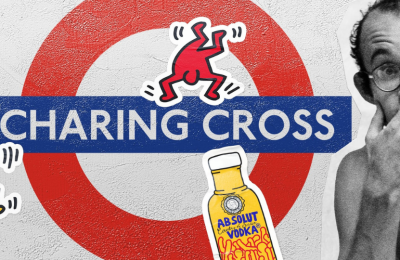UK consumers are fighting back against online retailers that fail to deliver, a new research report of what the UK public expects from retailers when shopping online, has found.
The report, titled ‘Are online retailers delivering for customers’?, from global commerce services company, PFS, found that more than six in ten (64%) online shoppers say they would stop using an online retailer after a maximum of three bad experiences, and that over half (54%) of those who shopped online in the last 12 months have had a negative experience with online shopping.
Shoppers are particularly concerned with retailers’ returns policies. Three-quarters (75%) of millennial online shoppers say they wouldn’t use an online store that has a strict or a ‘no returns’ policy, while nearly seven in ten (68%) of all those who made an online purchase in the last 12 months would join them in abandoning a ‘no returns’ brand.
Following the recent news that well-known online retailers are ‘blacklisting’ customers who regularly send back items, half (51%) of those who shopped online in the last 12 months state they wouldn’t use a brand which ‘blacklisted’ customers. This is despite only 5% of online consumers having returned more than five items they purchased online in one year.
In fact, consumers feel online brands should aim higher with their returns policies to meet customer needs. Three quarters (75%) of all consumers believe online retailers should expect higher levels of returns than stores because you can’t physically see the product when buying. More than three fifths (62%) of online customers expect to be able to quickly and easily return products that are ill-fitting or unsuitable.
It’s even more important for retailers to deliver on time during the Christmas rush: only 2% of those who shop online would be happy to receive an online delivery more than a week after purchase at peak season.
Significantly, if retailers do make these mistakes throughout the delivery journey, they can expect shoppers to tell everyone what went wrong. More than half (56%) of internet consumers who have had a negative experience with online shopping brands shared this with friends and family. Younger shoppers are even tougher, with almost seven in ten (69%) millennials who have had a negative experience stating that they shared the details of that experience with friends and family.
The research also found that more than a quarter of shoppers (28%) expect to spend more online during the 2019 peak holiday shopping season than last year. Brands especially need to ‘get it right’ over the peak season, with more than four in ten e-shoppers (44%) believing that the online orders they make at Christmas are the most important they will buy all year.
Joe Farrell, VP of international operations at PFS, said: “Imagine you’ve found the perfect item at the right price on an online store. You click ‘buy now’ and wait for it to arrive. But then it doesn’t. Or it turns up late, damaged or incorrect. You then try and return the item but are messed around by the retailer. Finally, you tell all your friends and family about your bad experience with that online brand. This scenario is becoming increasingly familiar as the online shopping industry continues to grow. Our research shows that UK consumers are now turning the tables on brands that are failing to deliver. They are expecting more and are prepared to tolerate less. Brands that take drastic measures such as ‘blacklisting’ serial returners to protect revenue in tough trading conditions, now face being blacklisted themselves by more than half of those who have shopped online over the past year, despite just 5% of the respondents having returned more than five items in one year. It’s no secret that bad customer service puts off shoppers, but this research highlights just how quickly customers are prepared to abandon retailers. Brands need to consider how their distribution, delivery, returns and customer service processes all impact customer perception and satisfaction. Getting it right will help them to protect brand loyalty and help them grow. Getting it wrong will result in customers leaving them for a better relationship. This research is too important to ignore.”
The full report can be found here.






















